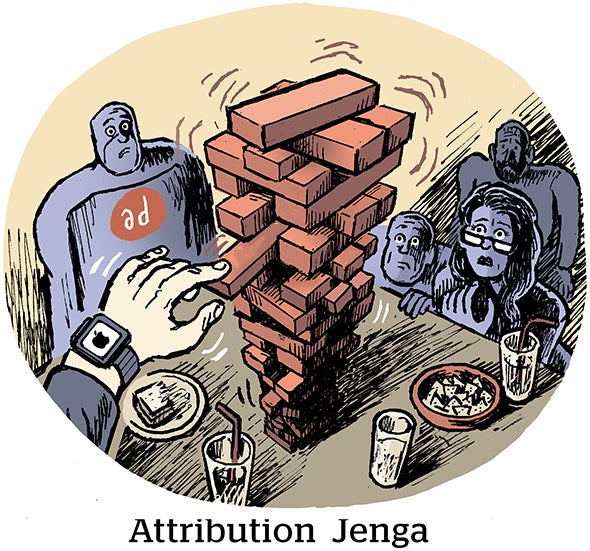The ad network is dead. Long live the ad network. Depending on whom you ask, things are doing very well or not quite well enough. The same of course holds true for Internet advertising as a whole. On the one hand, companies like Google and Yahoo with broad and extensive reach have just reported fantastic first quarter earnings. Google’s stock price has, as a result, recovered some 130 points since its recent lows. Then again, other stalwarts, even those with momentum on their side haven’t faired as well. Take AOL and MySpace parent News Corp. AOL spent somewhere near if not more than a billion dollars last year to increase its foothold in the online advertising space, investing to become a leader in not just owned inventory but third party inventory, what analysts like to collectively call owned and operated (o&o). Despite the acquisitions, or perhaps because of them, AOL has seen declining sales from this year to last in display ads. MySpace on the other hand hasn’t necessarily seen declining yearly revenues, but they won’t hit their lofty goal of $1 billion for 2008. Even though, Fox Interactive Media, the group that handles monetization for MySpace and soon their operated properties, represents a mere 3% of News Corp’s total sales, it was enough to "taint" the stock, as most analysts looked toward their Internet revenues for a greater percentage of the profits. No upgrade for you, they said after the company’s disclosure.
MySpace’s monetization challenge certainly helped fuel one of the highlights in the mergers and acquisition front and the indirect subject of another of this week’s articles, Adify’s acquisition. They play on advertisers’ fears about their brand showing up next to objectionable content, a fear that hasn’t materially hurt MySpace that much nor helped Adify earn that much actual revenue, but it has probably slowed adoption and innovation from some advertisers. Objectionable content doesn’t play a real issue with WebMD; although, in theory, some of the content on their site discusses more sensitive subjects than those found on the often perceived as objectionable, because it is not controllable user-generated content of social networking sites. Despite their brand rich playground, WebMD issued guidance suggesting they would not hit the numbers that they initially predicted for this year. This led more than one sideline pundit and professional stock price picker to ponder whether their performance issues, now in need of online advertising Viagra, signal a broader trend. Does it? Maybe. Maybe not. We don’t actually care, but that lack of care doesn’t come from flippancy or the fact that bad news sells better than good. Our dismissal comes from a slightly cynical side about certain company’s revenues.
With display centric companies like WebMD, AOL, Yahoo, and MySpace, those on the outside can gain some relative transparency into the health of the network by a few key advertiser behaviors, one of the most telling being contractual. Display companies, like broadcast media, like when advertisers commit to long-term contracts, and for the certainty of inventory, they even will offer preferential pricing. When these companies that have previously purchased what seemed like guaranteed revenue, start to change their mind and want out of the contracts, those involved start to get worried, especially the analysts. It also presents a nice lose-lose for the display inventory holder as they must start to accept shorter-term deals and not at the premiums they could normally charge. As this has taken place at a few of the larger display-centric companies, it does lead to broader speculation, but in reality it simply highlights the difference between the marketplace of search spend with great advertisers diversity and the much more narrow landscape of display where just a few advertisers can make a noticeable impact on a company’s overall performance. If and when auction backends take hold for display, these current concerns could become an issue not likely to appear again.
When we look at the difference in performance between certain companies, we see not the difference between search and display or marketplace versus contractual buys. Yes, having a much greater number of advertisers absolutely spreads the risk, but those that do well have something the others do not, leverage. Take Google for example. In the worst kept secret, their publishers loath the close of fiscal quarters as their earnings go down dramatically. Is it the advertisers running out of budget? No, it’s Google manipulating the dials to make sure they can hit their internal profit numbers. The publishers though don’t have enough leverage or proof because of Google’s wonderful opacity and dominance. Similarly, with their owned inventory, they continue to make changes to the equally vague Quality Score, to insure a certain average RPM per query or query group. They can continue to do this because equivalent options simply don’t exist. Other companies simply can’t do this. WebMD doesn’t have any levers; they run a straightforward a business, not as though that’s a bad thing. MySpace too has yet to hit the maturity of yield maximization or really just leverage with advertisers and inventory.
Advertising.com has it to some degree, but they don’t have enough pull to lift the entire AOL display division. Yahoo, of course, has Panama, and has started to join the do no evil camp, which might explain some of their positive numbers. In our not so little corner of the world, we call it something else – shaving. And, that’s what we see here. In the end, we’re not all that different, maybe only in the level of complexity needed to achieve the same result. So long as anyone does it, we can’t truly call our industry healthy, though.



